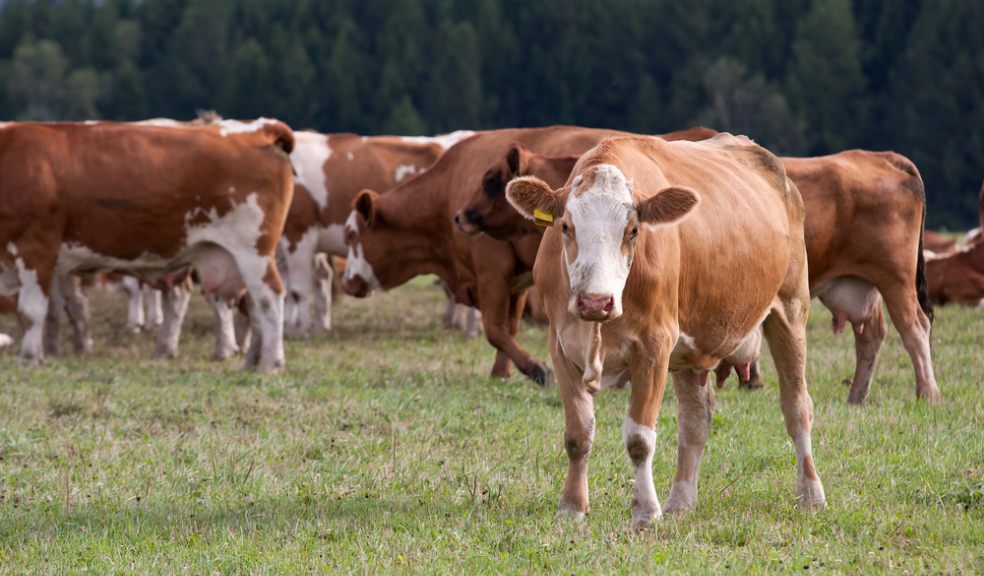
Methane from waste could power our homes
The UK could gain an edge in the race to become the most efficient converters of waste into energy when a £4 million research project comes to fruition.
Experts at the University of Exeter have been awarded the funding for groundbreaking research into creating biomethane, which can be burned to produce energy.
It is one of six large projects across the country to receive a share of a £20 million cash pot announced by Chancellor George Osborne yesterday. The grants are designed to revolutionise the application of synthetic biology in bio-industries. The funding from the Biotechnical and Biological Sciences Research Council (BBSRC) has been awarded to synthetic biology projectswhich could ultimately help to promote economic growth.
Dr Orkun Soyer is leading the research into anaerobic digestion (AD), in which waste is broken down by microbes in the absence of oxygen to release methane. At the moment the AD industry is relatively small in the UK, while thousands of large-scale and rural plants exist in countries like Germany, China and India. One of the main hurdles facing this technology is that little is known about how and why the microorganisms work to break down the material, which can include food waste and animal dung.
Dr Soyer, an expert in systems biology, said: “We are delighted to secure such a significant grant, which will enable us to carry out ground-breaking research into biomethane production. This process produces energy from waste, and could help provide answers to two key questions facing society: both how to dispose of increasing amounts of food and animal waste, and how to ensure we can meet our energy requirements into the future. A by-product of anaerobic digestion can be used as fertiliser, so our research could also have a large impact on agriculture.
“Anaerobic digestion units contain thousands of different types of microbial species working as a community. At the moment we know very little about which of these microbes is crucial to the process and how we could manipulate them to promote communities of bacteria to work more efficiently. If we can do that, AD could become a viable energy solution, and the UK could be at the forefront of that revolution. One major issue for existing facilities for example is robustness. At the moment, these microbial communities can suddenly stop functioning, resulting in no methane being produced. . If we could understand what makes communities robust and engineer a solution, it could be the key to a more sustainable future through AD.”
Dr Soyer and his team will examine the process in two ways. Firstly, they will scrutinise the natural process, by examining the microbial communities sampled from both bioreactors and nature. By going through several stages of selecting samples which give the highest yield (a process called directed evolution) they will derive the most efficient communities and analyse their composition and dynamics.
The team will also engineer synthetic communities using mathematical models of community function. Selected microbes will be experimentally put together to form much simpler synthetic communities compared to their natural counterparts, but that are potentially equally efficient in producing methane.
Dr Soyer has compiled the strongest possible research team across a range of disciplines that include scientists from University of Exeter, Newcastle University, Imperial College London and The Genome Analysis Centre. The team is supported by an advisory board that includes synthetic biology experts from the University of California and Harvard University, as well as industrial leaders Waitrose, Veolia, South West Water, the Centre for Process Innovation, new Generation Biogas and iNets South West Environmental.
The grants which will fund the research are part of BBSRC’s Strategic Longer and Larger Awards, which give world-leading teams the time and resources to address areas of key strategic importance.
The awards were supported by contributions of nearly £3million from industry and three of the awards were co-funded in partnership with the Engineering and Physical Sciences Research Council (EPSRC), which contributed nearly £2million.
The announcement comes following the government’s response to the Synthetic Biology Roadmap which sets out a shared vision for realising the potential of synthetic biology in the UK. The response welcomed recommendations to develop an internationally recognised world-leading synthetic biology research base.

















